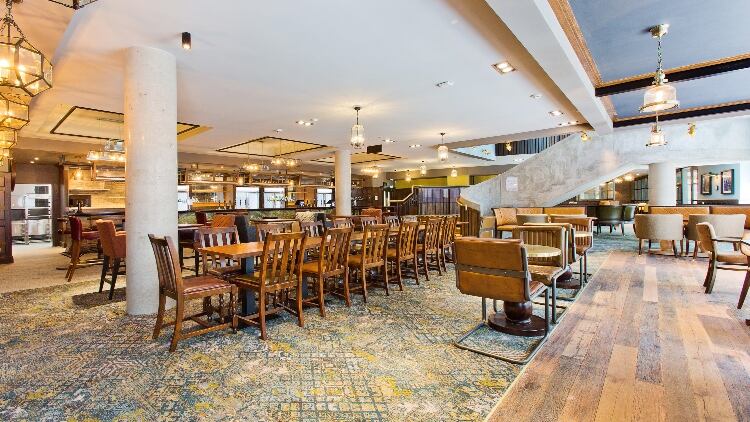According to industry bodies, one in five workers have left the sector since the coronavirus pandemic, and Covid and Brexit combined are often cited as being at the heart of the staff shortage.
But the narrative goes one step further than this, and that’s when alarm bells start ringing for me. If you scour the articles across various media channels, the story goes that Covid-19 shut venues across the UK, ousting hospitality staff and forcing them to find jobs elsewhere.
Upon finding said jobs, these former hospitality workers then discovered that the grass is greener outside of the world of bars, pubs and restaurants.
They kissed goodbye to what is being generalised as low wages, zero-hour contracts and long working hours, and unearthed industries where they could work fewer hours for more money, turning their backs on hospitality forevermore.
The baddy in this narrative then? The hospitality sector and all the dastardly employers that operate within it, under-valuing and demeaning their staff and pushing them onto pastures new. The insinuation is that the sector itself is to blame for this shortage for not looking after their staff.
Squeezed profit margins
Now I do not believe anyone wants to run a business where staff feel overworked, under-valued and under-paid.
As a bar operator myself, I for one would not feel good getting up in the morning to eke out as much toil and graft as I can from my staff, working them into the ground and getting away with the bare minimum in terms of how I remunerate them. It would not be a working culture that you could be proud of.
However, what I am aware of as a bar owner is that profit margins have been squeezed to incredulous levels and that for every weekly or monthly staff rota planned, we have to ask ourselves very real questions about how many staff we can afford to have on a given shift.
As much as many pub and restaurant owners would love to pay their staff more, we do not have the luxury of running on high profit-margins and making money in this sector can be hard, plain and simple.
In other words, it is fundamentally unfair to blame the operators within the hospitality sector for the staff shortage crisis, the pub and restaurant owners trying their best to make it work in a competitive and tight sector. Instead, the question we should be asking is, how can the Government do more to support the hospitality sector so that businesses can grow and pay higher wages, attracting potential employees to the sector?
There are three initiatives that I can think of straight away that would help. Firstly, tax cuts on alcohol would be a massive boost. As a brewery, we pay an extortionate amount on beer duty, a taxation that comes into play alongside VAT and corporation tax and everything else.
Stop blaming hospitality
Cuts in alcohol duty would enable us to sell beer to our hospitality customers at a better price, improving their margins significantly and giving these outlets more money in the pot to be able to afford higher wages.
Secondly and based on the exact same rationale, the Government could make permanent the 5% reduced rate of VAT that was introduced for hospitality during the Covid-19 pandemic. This would encourage custom, support businesses to grow and command greater profit-margins, and make pay rises affordable and therefore possible.
Lastly, another idea could be a special low rate of beer duty that applies to draught beer only, providing a potential cost advantage over packaged beer sold in supermarkets and again enticing more people to visit pubs and bars. More money spent out in hospitality venues means more money into the economy, which is win-win for everyone.
These are just some suggestions of course and I do not propose to have the all-encompassing solution to the question I posed.
The solution is not as important here as getting across the point that we need to stop blaming the hospitality sector itself for this staff shortage crisis.
It is not helpful, nor is it morale-boosting, after the deeply distressing year that the industry has had. Instead, what the industry deserves – an industry, it is important to add, that is still struggling to get back on its feet – is the commitment that the government will back it and do what it can to help make the sector an attractive place to work.
Blame gets you nowhere; surely it is better to look for ways to tackle this staff crisis head on?




